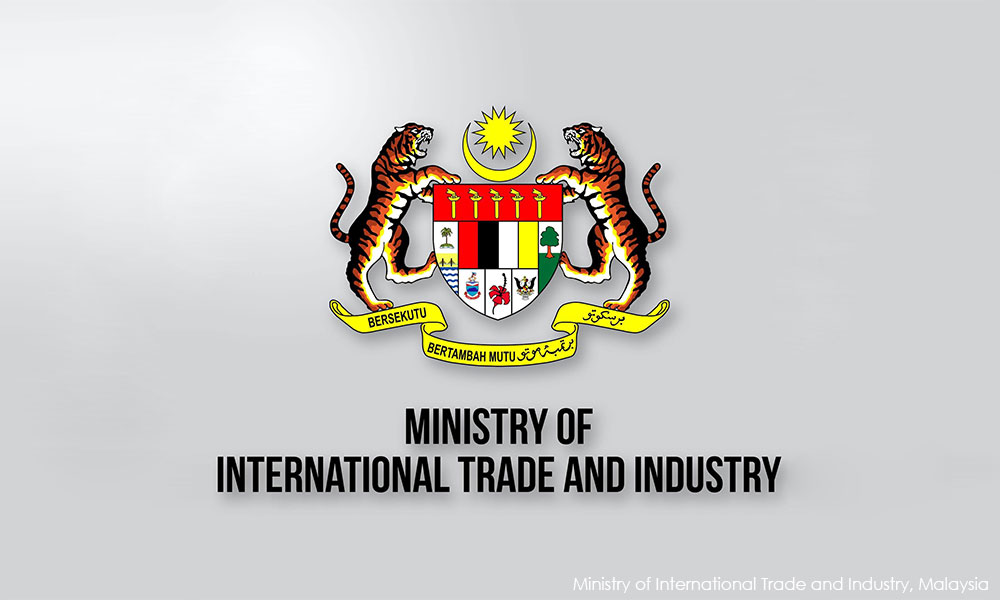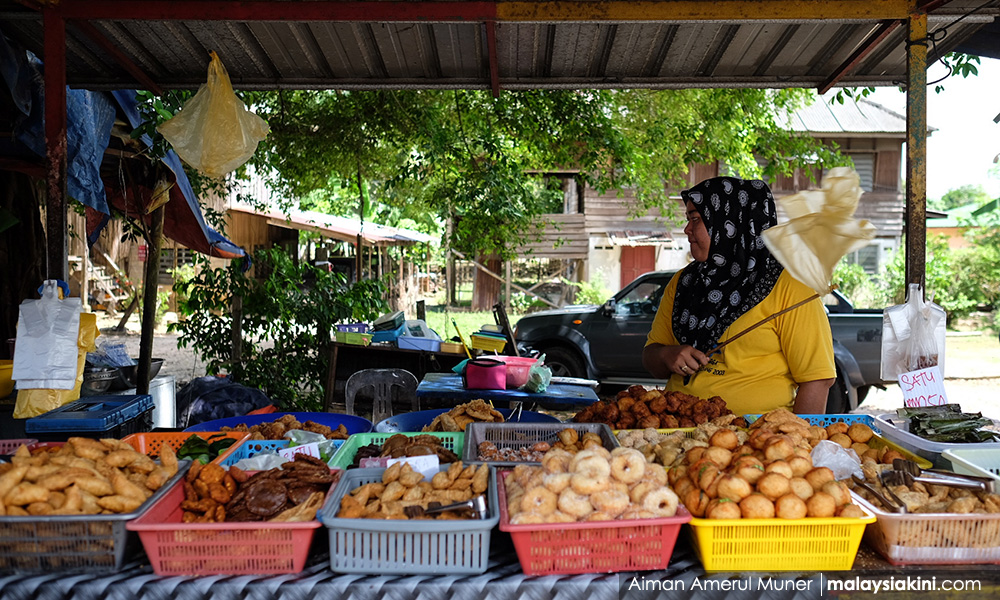Article 9.4 (1) in the Investment Chapter of the CPTPP (Comprehensive and Progressive Trans-Pacific Partnership) specifies that as follows:
“Each party shall accord to investors of another party treatment no less favourable than that it accords, in like circumstances, to its own investors with respect to the establishment, acquisition, expansion, management, operation and sale of investments in its territory”.
This is termed “national treatment”. If Malaysia fails to treat the foreign firm equally, then that company can drag us to an international tribunal under the ISDS (Investor-State Dispute Settlement) provisions of the CPTPP, and demand hefty compensation.
And it is not only the foreign firms who have actually invested in Malaysia who have this right to demand “national treatment”. The CPTPP includes any firm or person from any of the CPTPP countries who intend to invest in Malaysia - in its definition of “investor”. (Article 9.1: Definitions).
To be fair, there is a safety provision in the CPTPP that allows the participating countries (“parties” in CPTPP parlance) to list the sectors where certain specified provisions of the CPTPP do not apply.
These are termed “non-conforming measures” and are listed by participating countries in Annexes One and Two of the CPTPP document.
Malaysia Annex One is 31 pages long and its Annex Two is 18 pages long and they preclude several sectors from certain specified provisions of the CPTPP.
For example, page 3 of Annex One Malaysia, states that “foreign equity is limited to 49 percent for investment in the manufacture and assembly of motor vehicles. However, no foreign equity restrictions are imposed on the following categories:
Luxury passenger vehicles with an engine capacity of over 1800cc and on the road price of not less than RM 150,000
Pickup trucks and commercial vehicles
Electric or hybrid vehicles
Motorcycles with engine capacity of more than 200cc.
In a similar tone, Malaysian negotiators have specified on page 5 of its Annex Two that with regard to CPTPP’s provisions on “national treatment”, “performance requirements” and “market access”, Malaysia reserves the right to “adopt and maintain any measure that provides assistance to bumiputra for the purpose of supporting bumiputra participation in the Malaysian market by the creation of new or additional licenses or permits for bumiputra eligible to receive such assistance, provided that such measures shall not affect the rights of existing license and permit holders or future applicants for rights and permits in sectors where foreign participation is allowed.”
There are 47 specific non-conforming provisions registered in these two annexes for Malaysia, and the interested reader can go to the International Trade and Industry Ministry website and click on the CPTPP link.

But it is important to note that the lists in these two annexes are “negative” lists. In other words, all the sectors not specifically included in the annexes will have to comply with all the terms of the CPTPP.
For example, the wholesale purchase and distribution of fresh vegetables are not specifically mentioned in either of the two annexes.
However, Annex One – 21 which deals with distributive services, allows investors from any CPTPP country to register a firm in Malaysia and enter the wholesale market for fresh vegetables as long as the investor:
Gets approval from the Domestic Trade Ministry
Appoints a few bumiputra directors
Employs some Malaysians at the managerial level. (Annex One - 21: Non-Conforming Measures for Distributive Trade)
There are at present many wholesalers in this sector. The competition among them keeps the selling prices of fresh vegetables at the farms at a reasonable level.
Because if any wholesaler offers too low a price, the farmer has the option of seeking another wholesaler. It is a working example of how the free market mechanism is “fair” to all parties – the producers, distributors and consumers. It works because none of the players enjoys a monopolistic position.
However, a foreign firm with deep pockets could attempt to grow its business by buying from the farmers at a slightly higher price compared to the local wholesalers and selling at a lower price to the wet markets and supermarkets.
In this way, the foreign firm could over a period of a few years gain a large share of the market, in the process driving many local wholesalers out of the business.
Once the foreign firm achieves a dominant position in the fresh vegetable market, it will be able to lower the price it offers to the farmers while increasing the price of vegetables it offers to the supermarkets and wet markets.

And thus, the price of vegetables for local consumers will go up.
The above is not a far-fetched scenario. We can see it unfolding in the Grab versus taxi drivers situation in the country.
Grab is now tightening its terms for its drivers while increasing the rates it charges to customers. This happens to be the modus operandi of many large corporations.
They know that the “market power” that comes from creating an oligopoly of large players enables them to appropriate the surplus from other smaller players in the chain for producing and distributing that particular product or service.
So, they are prepared to raise capital to be generous in both their purchases and the sale of that commodity and run at a loss for the period it takes to drive the existing players out of the sector. Then they will leverage their market power to reap huge profits.
There are several other sectors that can be affected in a similar manner. The provision of secretarial services to the companies registered with the Companies Commission is not listed in either Annex One or Two. Neither are accounting services for the several hundred thousand companies incorporated in Malaysia.
As long as the foreign investor complies with Annex One - 21 as mentioned above, the foreign investor can venture into secretarial and accounting services.
With regard to retail sales of pharmaceutical products apart from the provisions in Annex One – 21, the foreign investor also has to comply with Annex One - 14, which specifies that “foreign pharmacists cannot prepare, dispense or sell pharmaceutical products In Malaysia”.
But both of these non-conforming provisions do not preclude a foreign investor from setting up a chain of pharmacies which employs locally registered pharmacists to provide drugs at a discounted price to gain market share as described above.
Beware of predatory foreign firms
Similarly, it appears that an investor from another CPTPP country can set up a chain of general practitioner clinics if it complies with Annex One – 21, and employs locally registered doctors.
The above is not an exhaustive list. Any sector where the sales turnover is large enough can become the target of predatory foreign firms. A multi-national firm with its headquarters in the US can also enter the Malaysian market citing the “national treatment” provisions using its subsidiary in Australia, Singapore or any other CPTPP nation.
The downside of having large foreign-owned chains developing oligopolistic positions within our distribution system for goods and services is not confined to the near certainty that the prices of these goods and services will go up once the foreign firm consolidates its market share.
We also need to consider the impact of the involvement of foreign investors on Malaysian aggregate demand.
The displacement of dozens of local vegetable wholesalers by one or two large foreign-owned wholesalers will result in the siphoning of profits in that sector to KL, Singapore and even further afield.
Aggregate market demand in the Kinta district of Perak will go down as the local wholesalers who live in and spend in the Kinta district get replaced by foreign firms which repatriate their profits.
One has to bear in mind Article 9.9 of the CPTPP: “Each party shall permit all transfers relating to a covered investment to be made freely without delay into and out of its territory. Such transfers include profits, dividends, interest, capital gains, royalty payments, management fees and other fees”.
A foreign investor is not here to develop the Malaysian economy or provide employment to Malaysians. If he sees an opportunity to make higher returns by investing his profits from his Malaysian operations in some other country, he wouldn’t give it a second thought.
In comparison, the small proprietors currently populating the wholesale and retail sectors are far more likely to spend and/or invest in the Malaysian market, thus creating more business and employment opportunities for Malaysians.
I wonder whether PricewaterhouseCoopers (PwC), which was commissioned by the International Trade and Industry Ministry to conduct a cost-benefit analysis of the CPTPP, factored in this probability (of foreign firms developing oligopolistic positions in various sectors and expatriating their profits) when they concluded that the Malaysian GDP will increase at a faster rate if we ratified the CPTPP agreement.

Or did they focus mainly on the expected increase in exports due to the marginal lowering of tariffs in the CPTPP countries?
(Marginal because Malaysia already has free trade agreements (FTA) with seven out of the other 10 CPTPP member countries, and World Trade Organization (WTO) regulations have already brought down the tariffs in Canada, Mexica and Peru – the three CPTPP members with whom we do not yet have an FTA.)
I very much doubt that PwC attempted to calculate the extent to which our GDP would be adversely affected by the outflow of funds from the domestic market due to the actions of foreign firms taking over several of the services currently provided almost entirely by local firms.
Local SMEs, especially those in the wholesale and retail sectors of the economy, should take stock of the dangers sketched out in this article.
Yes, the CPTPP agreement comprises 30 chapters and 2,000 pages with exceptions and qualifying statements spread out over several annexes. It is not an easy document to master.
But it is important the SMEs get some competent economists to go through the CPTPP document carefully as it appears to some among us that, over a period of 10 to 15 years, tens of thousands of SMEs are going to be driven out of the market by predatory foreign firms.
The Gabungan Kedaulatan Negara (GKN), a collection of several NGOs and other groups, has asked for the government to immediately withdraw from the CPTPP so that a proper in-depth economic analysis can be carried out on all outstanding issues including those highlighted in this article.
Article 4 of the Preamble to the CPTPP specifies that a six-month written notice has to be given by any country wishing to withdraw from the CPTPP.
No penalties are specified in the CPTPP document for withdrawing, but any country withdrawing runs the risk of being dragged to an international tribunal under the ISDS provisions by a foreign firm which made an investment in that country after the date of ratification.
Such a firm can claim that it has been “expropriated” by the loss of the benefits contained in the CPTPP agreement. And the company has a reasonable chance of winning a considerable sum as compensation.
Because of this, Malaysia will get “locked in” to the CPTPP by the fear that there might be multiple expensive lawsuits if we allow too much time to lapse before we withdraw.
The GKN submitted a memorandum to the 10th prime minister on his second day in office, urging him to take immediate action to avoid getting trapped in an economic agreement that has not been properly evaluated nor debated in Parliament and civil society.
We hope that now the immediate excitement of naming the cabinet is over, the government will make limiting the damage caused by the premature ratification of the CPTPP one of its major priorities. - Mkini
DR JEYAKUMAR DEVARAJ is the chairperson of Parti Sosialis Malaysia.
The views expressed here are those of the author/contributor and do not necessarily represent the views of MMKtT.



No comments:
Post a Comment
Note: Only a member of this blog may post a comment.